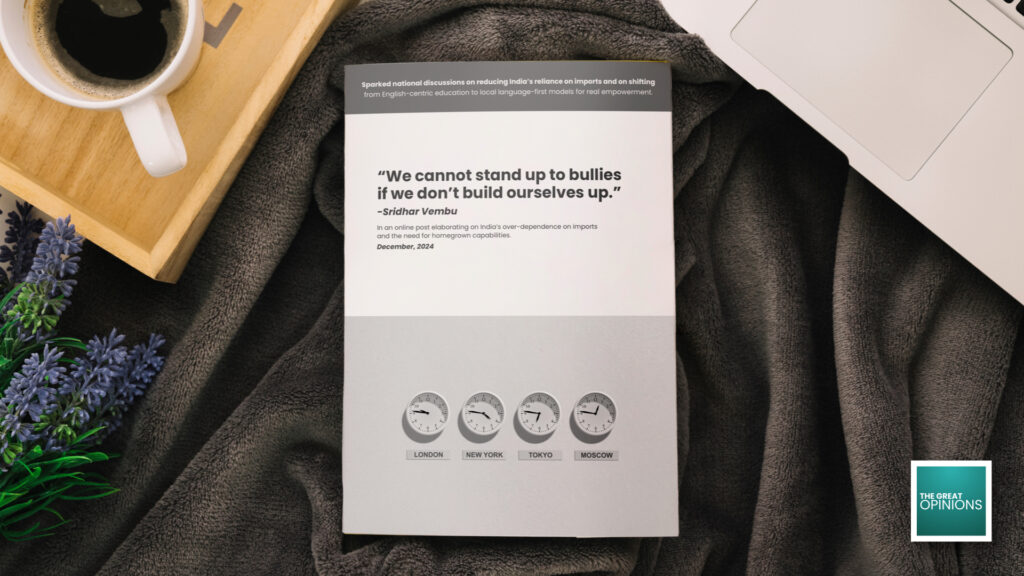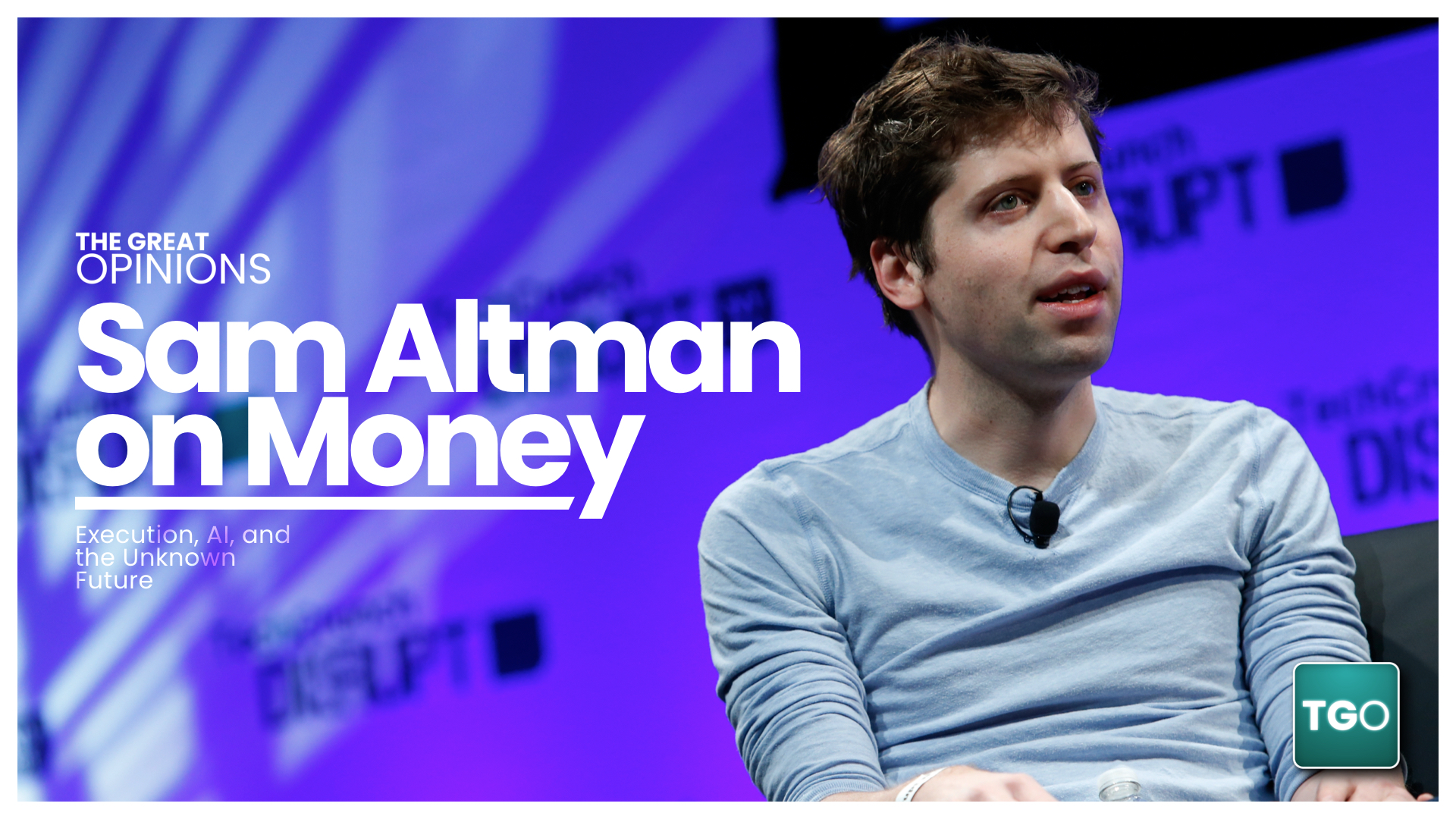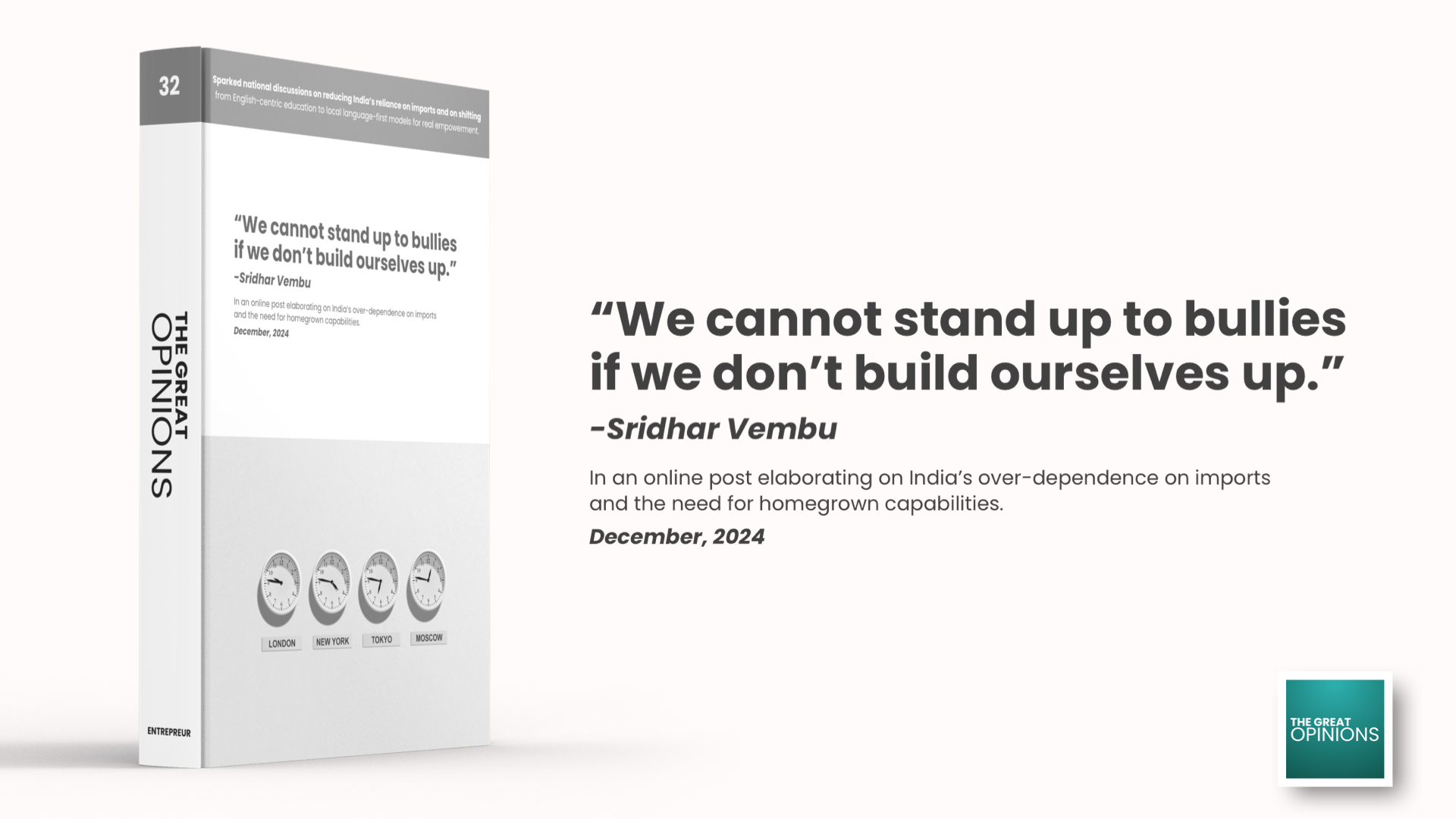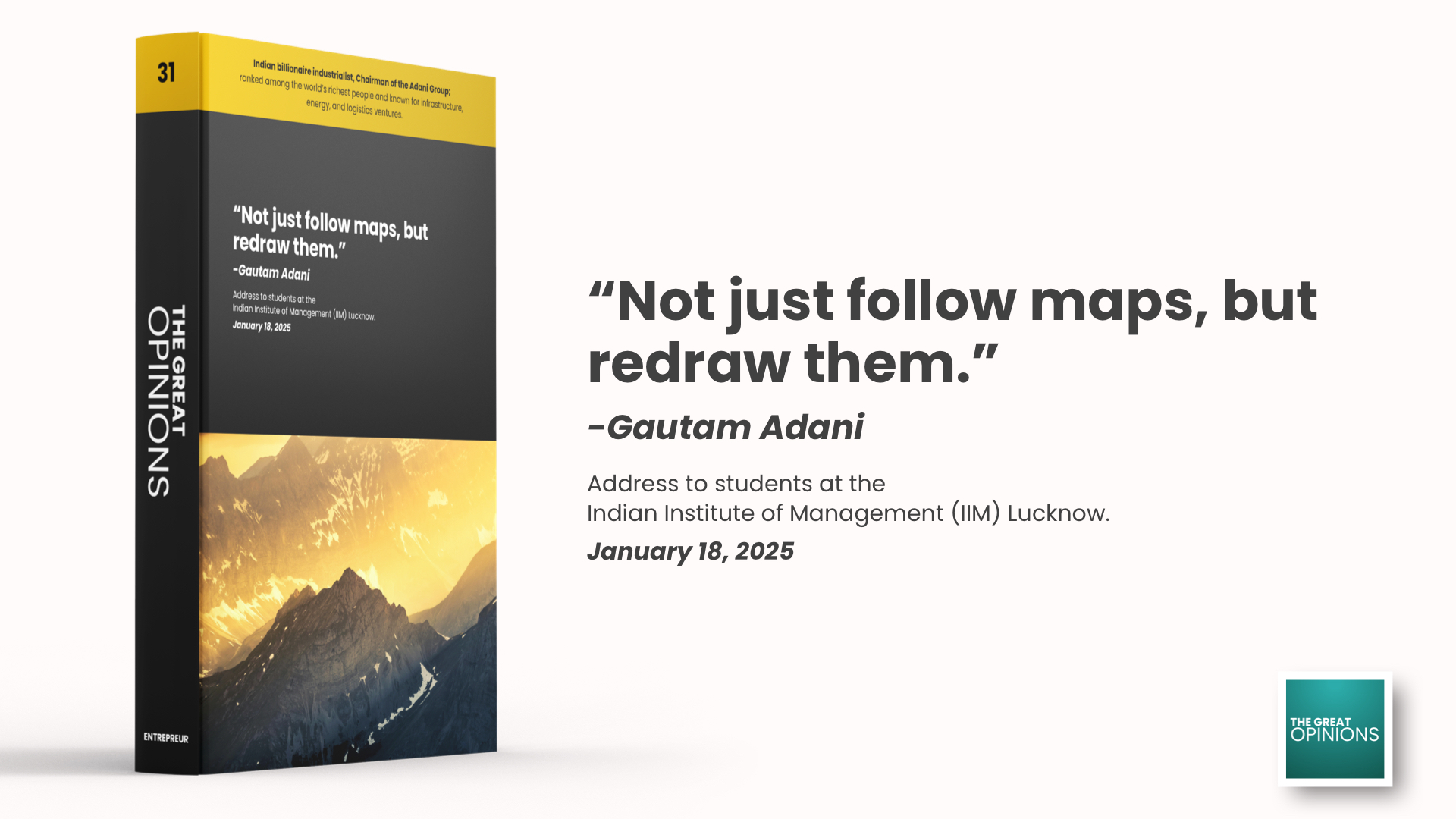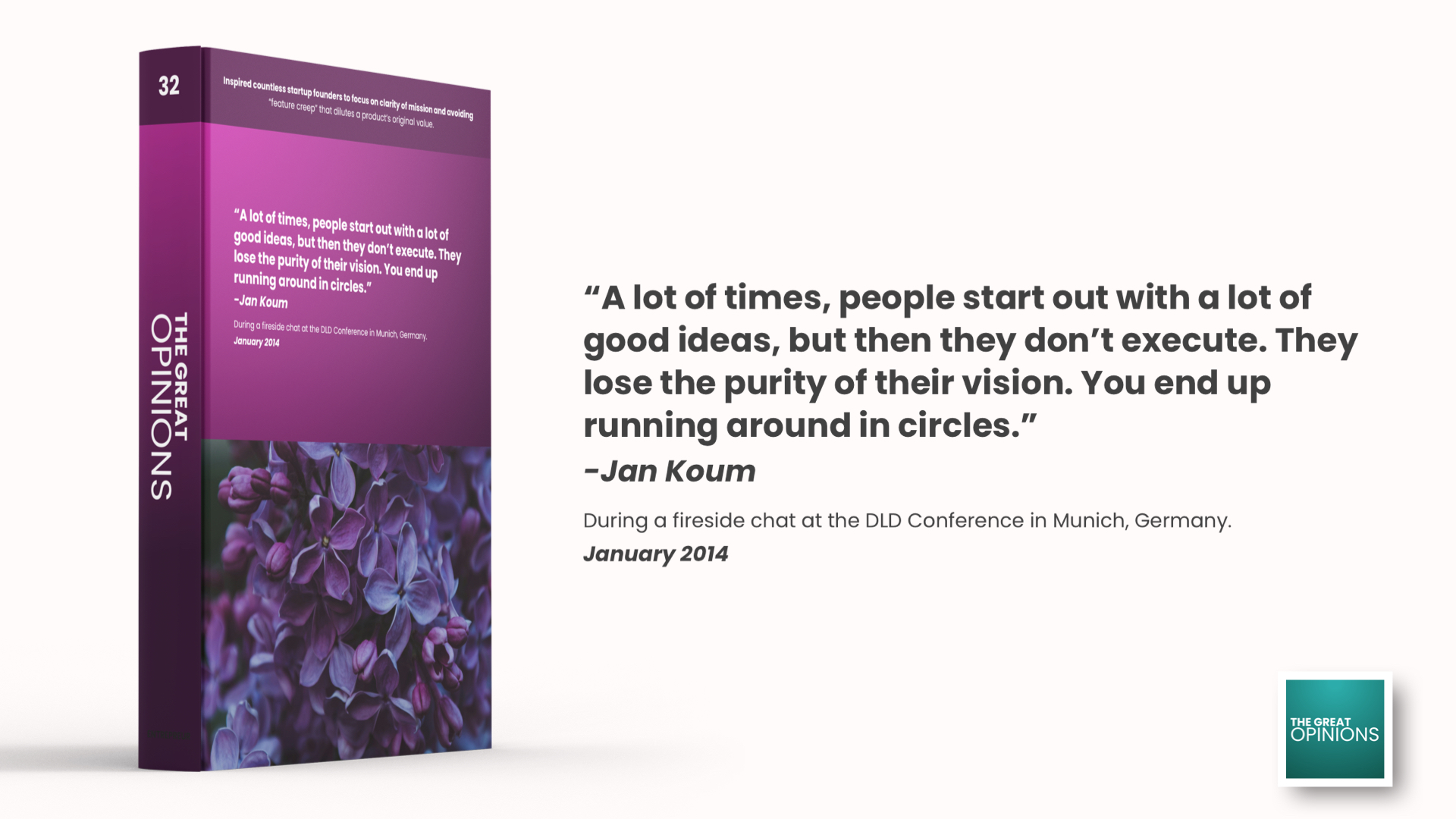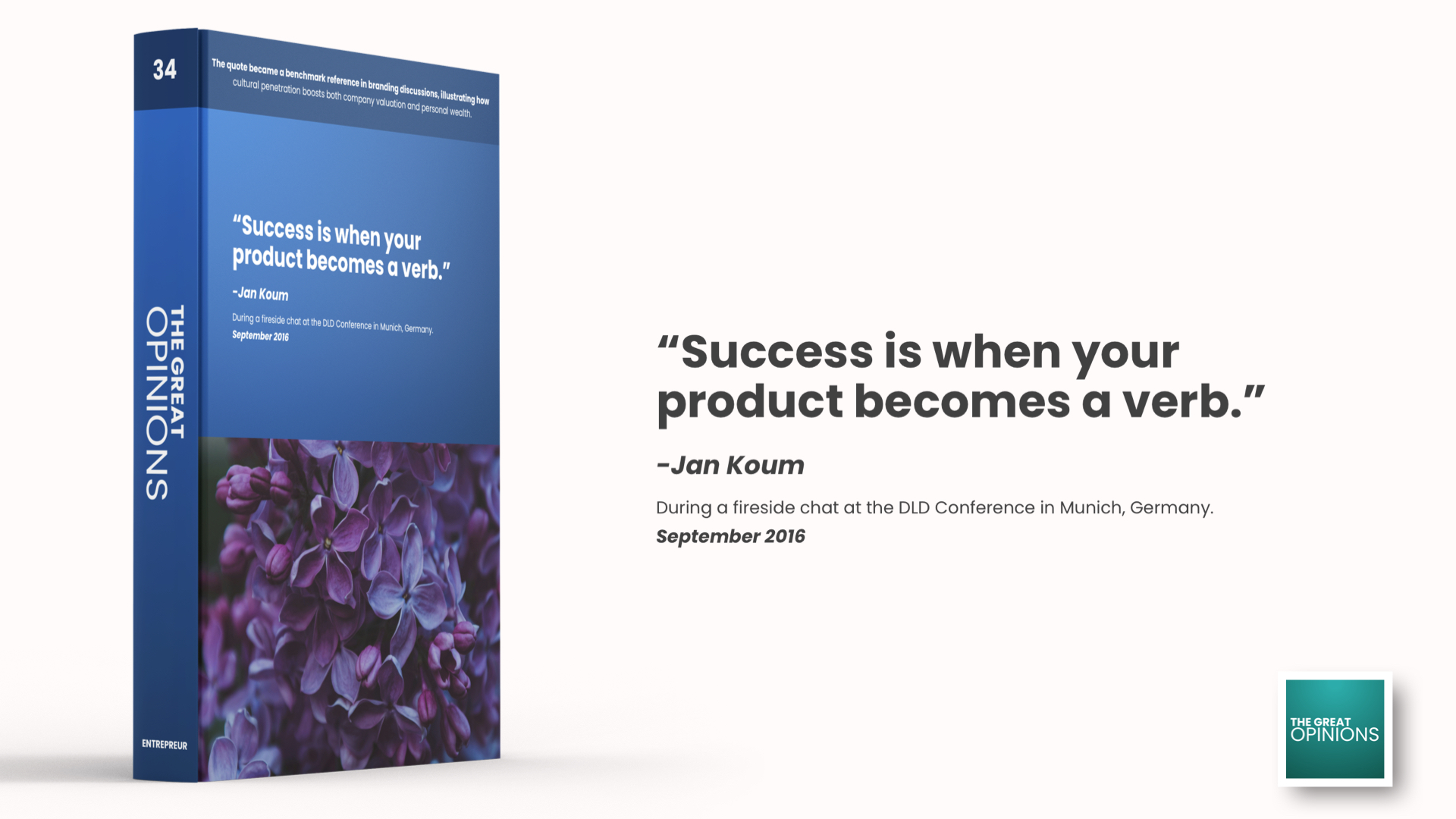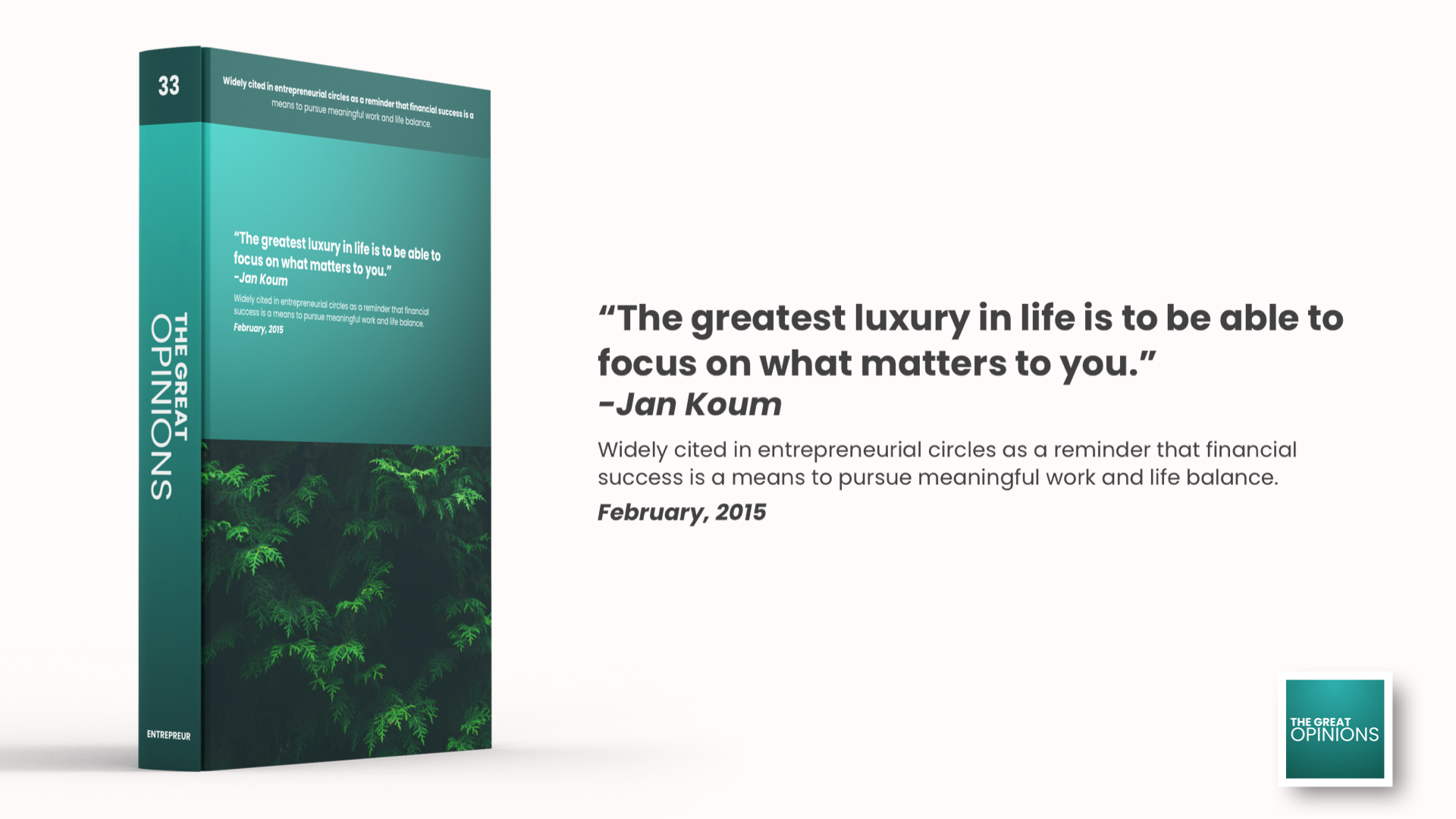From Rural Roots to Global Leadership – The Sridhar Vembu Journey
Why Money Alone Doesn’t Build Strength – Lessons from Zoho’s Growth
Money isn’t the enemy. It’s the crutch you lean on when the world starts swinging. But here’s the thing — a crutch won’t save you if your legs were never strong to begin with. Sridhar Vembu doesn’t care for your shiny MBA slogans or the way you spit English to sound important. He came from the dust, from a place where the only currency was grit, and he built a billion-dollar machine without asking anyone’s permission. “We cannot stand up to bullies,” he says, “if we don’t build ourselves up first.” And he’s not talking about lifting weights or posting motivational garbage online. He’s talking about making things — real things — that don’t bow to imports, don’t crumble at the first slap from the market. He’s talking about the kind of strength you earn in silence, long before anyone knows your name.
The first light of dawn in Tenkasi isn’t the harsh fluorescence of a corporate boardroom. It’s soft, warm, and honest—spilling over the palm groves, the red earth, and the small school where Sridhar Vembu sometimes teaches math to village kids. The man who built Zoho Corporation into a global software powerhouse doesn’t live in a Silicon Valley penthouse or a South Mumbai tower. His home is here, among farmers and weavers, in a district most CEOs have never heard of.
It’s here, over steaming filter coffee and the quiet hum of cicadas, that Vembu’s words cut through the air like tempered steel: “We cannot stand up to bullies if we don’t build ourselves up.”
To him, “bullies” aren’t just people—they’re systems. The global tech monopolies that swallow smaller innovators. The economic dependencies that keep nations bowed. The cultural insecurities that make us trade our own languages, ideas, and confidence for imported ones. And his message is simple: the fight isn’t won in boardrooms or on Twitter—it’s won by building.
Born in 1968 to a modest Tamil family, Vembu’s story doesn’t follow the Silicon Valley stereotype. He didn’t attend the Ivy League; he attended IIT Madras for his undergraduate degree in Electrical Engineering and then Princeton for his PhD. But even as he studied in America, he never fully bought into the mythology that India’s destiny was to produce talent for someone else’s dream. While many of his peers found permanent comfort in cushy jobs abroad, Vembu’s mind kept circling back to a different possibility—a company from India, powered by Indian engineering, competing head-to-head with the world’s best.
| Topic | Details |
| Who is Sridhar Vembu? | Indian billionaire entrepreneur, co-founder & CEO of Zoho Corporation; known for promoting rural development, local language education, and self-reliance in tech. |
| Education | Bachelor’s in Electrical Engineering from IIT Madras; PhD dropout from Princeton University. |
| Famous Quote | “We cannot stand up to bullies if we don’t build ourselves up.” |
| Where It Was Said | In an online post elaborating on India’s over-dependence on imports and the need for homegrown capabilities. |
| Date of Quote | December 2024 |
| Occasion/Setting | Public commentary following a discussion on India’s economic vulnerabilities and cultural dependencies, shared through his verified social media account. |
| Witnesses/Audience | Primarily Indian entrepreneurs, policy-makers, and followers of Sridhar Vembu’s philosophy on self-reliance. |
| Why It Matters | The quote underscores his consistent advocacy for building India’s internal strengths — in technology, manufacturing, and culture — before trying to challenge global dominance. |
| Published By | Covered by major outlets like MSN, Republic World, and Business Today in December 2024. |
| Impact | Sparked national discussions on reducing India’s reliance on imports and on shifting from English-centric education to local language-first models for real empowerment. |
In 1996, that possibility took root in a small apartment in Pleasanton, California. Vembu and his brothers didn’t have venture capital. They had no “unicorn valuation” headlines, no social media blitz. What they had was an unshakable belief in building products that mattered—and the patience to let the Money follow the mission. That belief birthed Zoho Corporation.
From the very start, Zoho refused to play by the rules that seemed etched into the DNA of tech startups. No external funding. No stock market listings to impress investors at the expense of customers. No “exit strategy” to cash out quickly. Instead, Vembu focused on creating profitable, sustainable software for small and medium businesses—first in network management, later expanding to cloud-based productivity tools.
His critics scoffed. Without funding, you can’t scale. But scale came anyway—slow, deliberate, and unshakeable. Today, Zoho serves over 100 million users in 180+ countries. And yet, Vembu’s personal wealth, estimated in the billions, is almost incidental in his story. The focus has always been on resilience—both for the company and for the people it serves.
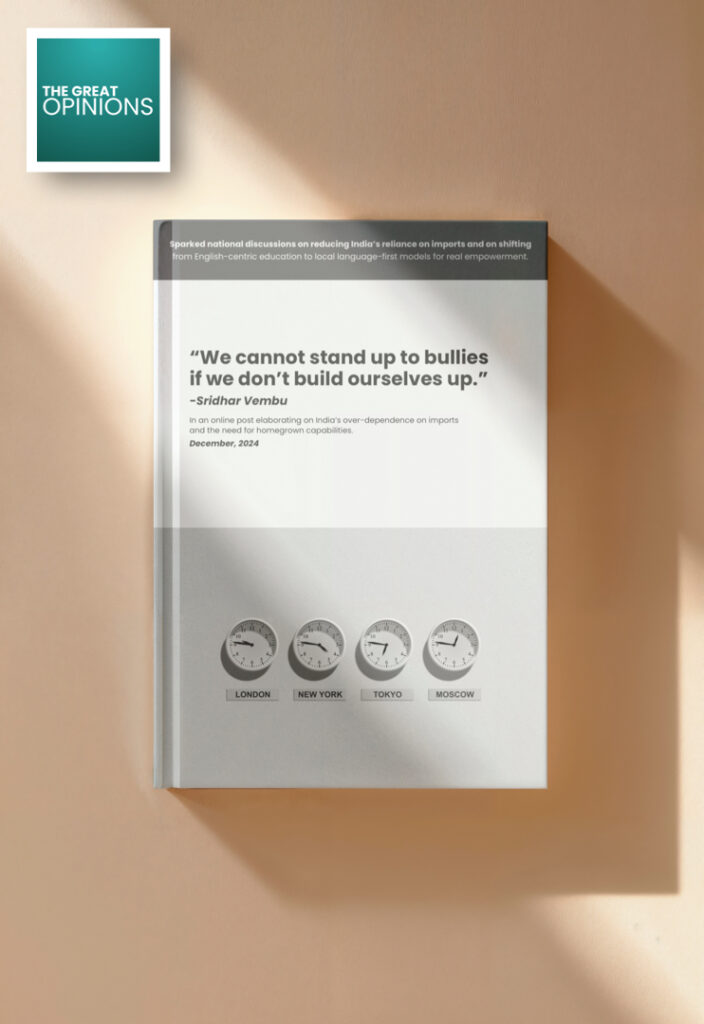
That’s why in 2019, he did something that rattled the tech world—he moved back to rural India. To many, this seemed like a retreat. But for Vembu, it was a strategic advance. “If I can run a global software company from a village, then maybe a whole generation can see that talent need not migrate to succeed,” he said in an interview. This was about more than symbolic leadership—it was about dismantling the belief that greatness must be exported before it’s recognised.
In Tenkasi, Zoho began recruiting local youth—often high school graduates with little exposure to the corporate world—and training them in coding, design, and product development. Vembu saw this as a direct investment in India’s intellectual sovereignty. The idea was radical: bypass elite recruitment pools, bypass English as the default gatekeeper, and tap into the raw, unpolished talent of rural India.
This is where his quote—“We cannot stand up to bullies if we don’t build ourselves up”—hits its deepest note. The “building” isn’t just about GDP or balance sheets; it’s about confidence. It’s about a small-town engineer being able to write code for a global client without feeling the need to mimic an accent. It’s about an entrepreneur in a Tier-3 city believing that the Money they make can be reinvested into their own ecosystem rather than chasing validation abroad.
Vembu’s refusal to let Zoho become just another acquisition target is part of that stand. Over the years, global giants have tried to buy the company. Some came with flattery, some with staggering offers. He turned them all down. The reason? Selling out would mean ceding control, and with it, the ability to chart an independent path. “If we are to build long-term resilience, we can’t be at the mercy of boardrooms sitting thousands of miles away,” he said in a 2021 talk.
The philosophy extends beyond business. Vembu has often spoken about India’s over-reliance on imports—not just of goods, but of ideas. He challenges the belief that English proficiency is the sole marker of intelligence. In 2024, he made headlines by urging companies to conduct interviews in local languages. This wasn’t cultural nostalgia; it was strategy. “A mind thinks best in the language it dreams in,” he explained. And a country that thinks in its own voice stands taller against global pressure.
This stance hasn’t always won him fans. Some accuse him of being idealistic, even isolationist. But his track record—and Zoho’s balance sheet—suggest otherwise. The company crossed $1 billion in revenue without a cent of outside funding, maintaining profitability while investing heavily in R&D. It’s a model that proves self-reliance isn’t a romantic relic—it’s a competitive advantage.
And here’s where the Money focus keyword ties in directly: Vembu’s relationship with wealth is unlike that of many modern tech billionaires. He treats Money as a tool, not a trophy. His own lifestyle is austere by Silicon Valley standards. No fleet of luxury cars, no sprawling real estate empire. He’s more likely to be seen on a bicycle in Tenkasi than in a chauffeur-driven sedan in San Francisco. That frugality isn’t about denial—it’s about direction. Money, in his philosophy, is best spent building capacity: in people, in products, in independence.
The bullies he speaks of—be they multinational corporations, geopolitical forces, or economic pressures—thrive when nations and companies depend on them. Vembu’s answer is deceptively simple: remove the dependency. Build the infrastructure, the skills, the products, and the confidence that make you unshakable. It’s the same principle that allowed Zoho to survive market downturns, withstand competitor aggression, and operate entirely on its own terms.
As the sun dips in Tenkasi, the children at the local school pack their books and run toward the dusty football field. Vembu watches them for a moment, a quiet smile on his face. In their laughter and arguments, he hears the future—a future that won’t have to bow to anyone, because it will have been built brick by brick, line of code by line of code, on home soil.
“We cannot stand up to bullies if we don’t build ourselves up,”
he repeats softly, almost to himself. It’s not a slogan for a campaign or a pitch to investors. It’s the operating system of his life—a line that explains why a billionaire lives in a village, why a global company hires from small towns, and why, in the battle between dependence and dignity, he will always choose to build.
Some Facts:
1. Self-Reliant, Bootstrapped Growth
- Zoho reached over $1 billion in annual revenue and serves 100 million users globally, all while remaining completely bootstrapped, without external funding.
2. Rural Innovation Starts in Tenkasi
- Zoho set up its rural development hub in Tenkasi (Tamil Nadu) in 2011, starting with just 10 employees. Today, that office hosts nearly 900 staff members involved in product R&D and support.
3. Vision: India’s Own Chipmaking
- Zoho is planning a major foray into chip manufacturing, proposing a $700 million investment into compound semiconductor production in Tamil Nadu.
4. Financialism & Skill Loss Warning
- Vembu critiqued the over-reliance on market solutions, arguing that “Money can’t buy everything”—warning that financial shortcuts erode essential skills over generations.
5. Advocacy Against Education Loans
- He recently cautioned students against taking large education loans for overseas degrees due to unstable job markets, urging a focus on building skills and self-reliance.
6. Recognition & Legacy
- Sridhar Vembu holds a B. Tech from IIT Madras and pursued a PhD at Princeton. He was honored with the Padma Shri (2021), recognized as CNN-News18 Indian of the Year (2022), and awarded EY Entrepreneur of the Year (2019). He stepped down as CEO in 2025 to focus on R&D.
